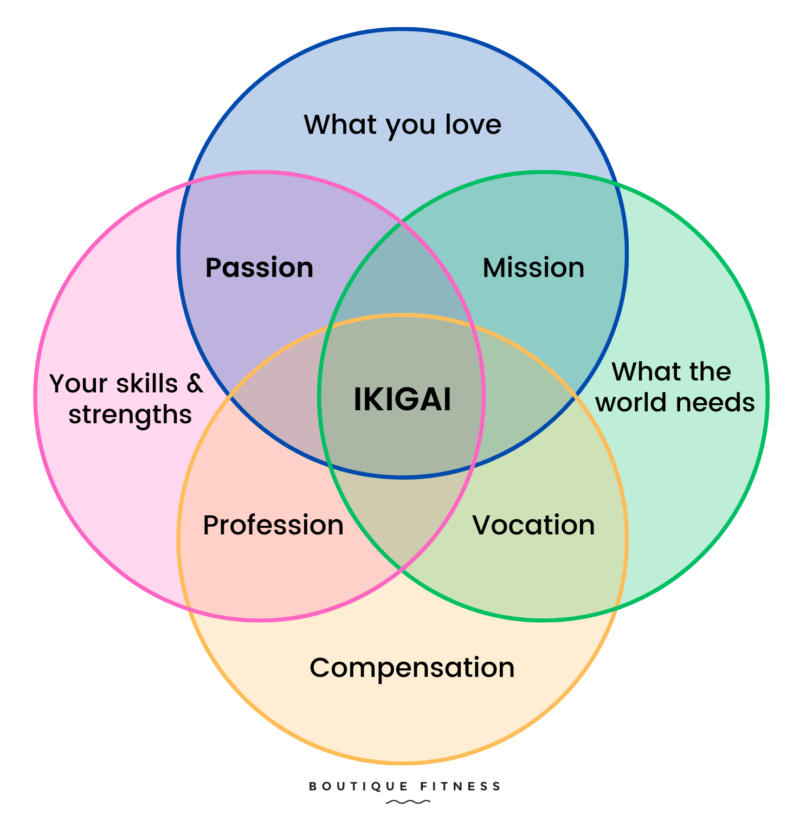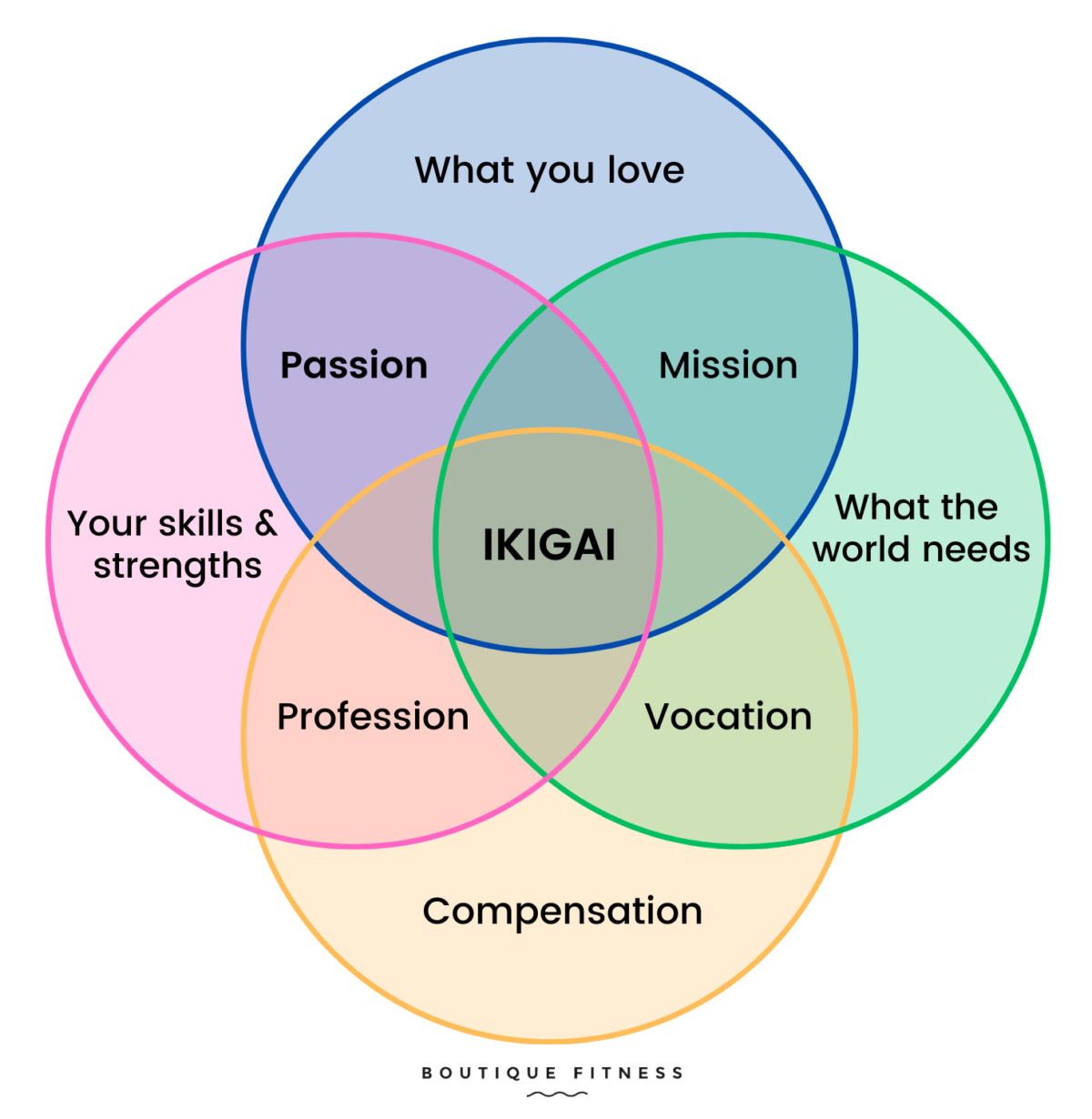
I recently met a woman who is a social worker for the aging population. She said that if you really want to ‘fill your cup’, work with the elderly. They are mostly afraid of being forgotten and considered a burden. She described her clients as appreciative, fascinating, and still capable of giving so much. She said that generally speaking,
Interestingly enough, I had recently watched a Netflix series called Live to 100: Secrets of the Blue Zones where the narrator, Dan Buettner, travels all over the world where there are pockets of centenarians to learn more about their lifestyle and how, not only do they live so long, but they also live very well. They are active and continue to contribute to their communities.
In the series, they talk about Ikigai – our ‘purpose in life’. Ikigai is a major factor in not only longevity, but also in living with fulfillment. Staying busy in a positive way that brings joy.
You’ll see in the diagram below that, in short, ikigai is where things come together for you. But it’s important to keep in mind that it heavily depends on your environment also. Your community, your village, your resources, and your contribution to all of these things.

I took the liberty to make a couple of changes to the popular diagram. Which took liberties from the original Japanese diagram. The common image that you’ll find uses; ‘What you’re good at’ instead of ‘skills & strengths’, as well as ‘what you can get paid for’ instead of ‘compensation’.
I find that we’re much more at ease about identifying our skills and strengths than we are at identifying what we’re good at. ‘What we’re good at’ sounds like a raw talent, a gift. We may be gifted at playing guitar or running. But when we think about strengths and skills, we’re more likely to dig a little deeper and consider a skill set that is useful to the community around us. A skill set that we can build on. Our strengths in terms of character that can pave the way for an incredible life.
‘Compensation’ encompasses so much more than getting paid. If you consider the value behind everything you have to offer, compensation (or reward) for each could look very different. In the Blue Zones, it’s not about the paycheck, it’s about the community, the love, and the support. Volunteering is a great example of this. Your compensation for volunteering is probably something that fills you up, otherwise you may not do it. How we get compensated is important. Sometimes it will be financial, but mostly it won’t. Recognizing what that looks like for you could mean a lot for helping you identify your Ikigai.
What you love is a big one. Ideally we would all love what we do. But even if it’s not quite hitting the mark, are you able to find some love within it all? And the things that you do love – are you making space in your life for them?
‘The world’ in this case, means YOUR world. Your village, your community, your network of people and the world you build together. What are the needs, the wants, the must haves, and the nice to haves. Within this circle there is also room for innovation, which could really light up your other circles 😉
Here is a great video illustrating some interesting details about IKIGAI that could be helpful as you think about what this may mean for you.
It’s very easy to get hung up on the day to day. Most of us are very busy, but not always in a good way. Considering what your ikigai looks like could really help you resolve this. Help you change gears and simplify your outlook. I hope you can steal away a little time to watch the series on Centenarians and the talk on Ikigai. And then I hope you take a moment to identify each aspect for your own life, for resilience and longevity.
xo Lara


